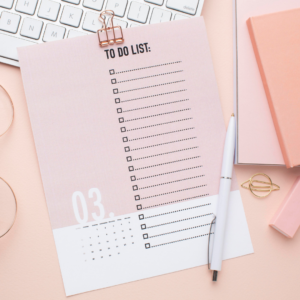Most people hate paperwork and organizing their monthly bills. It’s easy to put it off and procrastinate because the task seems daunting.
But with a few simple tips, you can make the process much less painful and even be able to get it done in a fraction of the time. Here are twelve tips that will help you organize your monthly bills and paperwork.
1. Create a system that works for you.
Whether it’s a physical folder system or an electronic one, find a way to store the paperwork that makes sense to you and is easy to access. This will help you stay on top of things and avoid a cluttered mess.
2. Set aside time each month to tackle the task.
Schedule an hour or two on your calendar to pay bills and organize paperwork. This will help you stay focused and get the job done in a timely manner. You will be able to get it out of the way and not have to worry about it for the rest of the month.
3. Gather all of your materials in one place.
Before you begin, make sure you have everything you need: bills, statements, account information, etc. Having everything in one spot will make the process much smoother and faster.
4. Start with the most important tasks first.
Tackle the tasks that are time-sensitive or have deadlines first. This will help you stay on top of things and avoid any late fees or penalties. We all know how frustrating it is to be charged a late fee, so avoid it by getting the most important tasks done first.
5. Make payments electronically.
Online bill pay is a great way to save time and avoid missed payments. You can set up automatic payments for your recurring bills and not have to worry about them each month.
6. Keep track of important dates.
Use a calendar or planner to keep track of when bills are due, payments are made, and other important dates. This will help you stay on top of things and avoid any late fees or penalties.
7. Set up a filing cabinet or storage box specifically for bills and paperwork.
This way, everything will have a designated place and you won’t have to spend time looking for things. Organize the cabinet or box in a way that makes sense to you and is easy to access.
8. Shred old documents and statements.
You should keep the most important documents, like tax returns and mortgage paperwork, but you can shred old statements and other documents you don’t need. This will help declutter your space and make it easier to find what you need.
9. Go paperless.
Many companies now offer paperless billing, which can be a great way to reduce the amount of paper you have to deal with each month. You can usually view and pay your bills online, which is more convenient and eco-friendly.
10. Set up reminders.
Whether it’s a reminder on your phone or a physical note, set up a system to remind you when bills are due or payments need to be made. This will help you stay on top of things and avoid any late fees or penalties.
11. Stay organized throughout the year.
The more organized you are throughout the year, the easier it will be to deal with your monthly bills and paperwork. Stay on top of things by putting away documents and statements as you get them. This way you won’t have a huge pile to deal with at the end of the year.
12. Hire a professional.
If the thought of dealing with your monthly bills and paperwork is too overwhelming, hire a professional to help you. They can handle the task for you and take the stress off of your shoulders.
Final Note
Organizing your monthly bills and paperwork doesn’t have to be a pain. With a little time and effort, you can get the job done quickly and efficiently. Use these tips to help you get started and stay on track.




